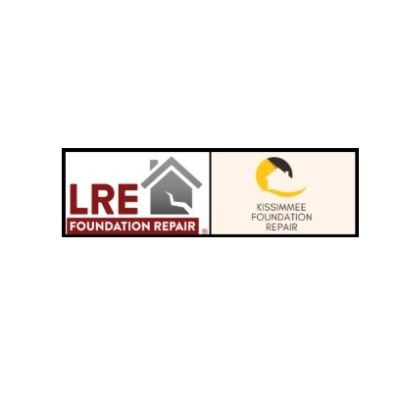New Zealand's startup ecosystem is vibrant, with a plethora of opportunities for innovation and growth. However, navigating the country's unique tax laws can be a daunting task for entrepreneurs. While many focus on product development and market strategies, understanding the tax landscape is equally crucial for sustainable growth. Let's delve into five lesser-known aspects of New Zealand’s startup tax laws that could significantly impact your business journey.
1. Research and Development Tax Incentive
One of the most attractive aspects of New Zealand's tax policy for startups is the Research and Development (R&D) Tax Incentive. Introduced to boost innovation, this incentive allows businesses to claim a 15% tax credit on eligible R&D expenditure. However, many startups are unaware of the full extent of activities that qualify as R&D. According to a report by the Ministry of Business, Innovation and Employment (MBIE), only 60% of eligible startups take full advantage of this incentive. Businesses can claim activities like software development, prototyping, and market testing as R&D, provided they meet the criteria set by Inland Revenue.
Innovation Breakdown: Leveraging the R&D Tax Incentive
Consider the case of a Wellington-based healthcare startup that developed a new telemedicine platform. Initially focused only on product development, they realized they could claim a significant portion of their software development costs as R&D. By engaging with a tax consultant, they optimized their tax position, allowing them to reinvest savings into further innovation. This highlights the importance of understanding and leveraging the full scope of tax incentives available.
2. Loss Offsetting and Carry-Forward Provisions
Startups often operate at a loss in their early years, making the ability to offset or carry forward these losses a crucial tax consideration. New Zealand allows companies to carry forward tax losses to offset future profits, provided there is at least a 49% continuity in shareholding. This provision helps startups stabilize their financial planning by reducing future tax liabilities. However, a common oversight is not maintaining proper records of shareholding changes, which can disqualify the offsetting of losses.
Case Study: Navigating Loss Offsetting
A tech startup in Christchurch encountered challenges when an investor changed their shareholding structure. They initially overlooked the impact on their ability to carry forward losses. After consulting with tax experts, they restructured their shareholding to maintain the required continuity, preserving their ability to offset future profits. This underscores the importance of strategic planning in shareholder management.
3. Accelerated Depreciation for Technology Investments
In an effort to promote technological advancement, New Zealand offers accelerated depreciation rates for technology-related investments. This allows startups to write off the cost of technology equipment faster, improving cash flow. For instance, computer hardware and software can be depreciated over a shorter period, reducing taxable income in the early years when cash flow is critical.
Data-Driven Insight: Economic Impact of Depreciation Policies
A study by Stats NZ indicated that businesses utilizing accelerated depreciation saw a 20% improvement in cash flow within the first two years. This policy not only incentivizes investment in technology but also supports startups in maintaining a competitive edge by adopting cutting-edge tools and equipment.
4. GST Implications for Exporting Startups
For startups involved in exporting goods or services, understanding Goods and Services Tax (GST) implications is crucial. While exported goods are zero-rated for GST, the situation is more complex for services. The place of supply rules determine GST obligations, and startups must ensure compliance to avoid penalties. Notably, software as a service (SaaS) companies must navigate these rules carefully to optimize their tax position.
Pros vs. Cons of GST Strategies
- Pros: Zero-rating exports can significantly reduce GST liabilities, enhancing cash flow.
- Cons: Misinterpretation of place of supply rules can result in costly penalties and compliance issues.
Startups should invest in expert advice to navigate these complexities effectively.
5. Employee Share Schemes and Taxation
Offering employee share schemes is a popular strategy for startups to attract and retain talent. However, these schemes come with complex tax implications. The taxation of employee share schemes can vary based on the structure, timing, and valuation of shares. According to Inland Revenue, the key is understanding when the tax liability arises and ensuring accurate valuation to avoid unexpected costs.
Common Myths & Mistakes
- Myth: "Employee shares are taxed only when sold." Reality: Tax obligations can arise at the time of vesting or grant, not just sale.
- Myth: "Valuation of shares is straightforward." Reality: Accurate valuation requires professional assessment to comply with tax requirements.
Conclusion: Final Takeaways & Call to Action
- Leverage the R&D Tax Incentive to boost innovation and reduce tax liabilities.
- Maintain continuity in shareholding to benefit from loss offsetting provisions.
- Utilize accelerated depreciation to improve cash flow for technology investments.
- Understand GST implications for exporting to optimize tax positions.
- Seek expert advice on employee share schemes to avoid unexpected tax liabilities.
Understanding New Zealand's startup tax laws is not just about compliance; it's a strategic advantage that can fuel growth and innovation. Engage with tax professionals to maximize your benefits and position your startup for long-term success. Share your experiences or insights below!
People Also Ask (FAQ)
- How do R&D tax incentives benefit startups in New Zealand? R&D tax incentives provide a 15% tax credit on eligible R&D expenses, boosting innovation and financial sustainability.
- What are the GST implications for exporting startups? Exported goods are zero-rated for GST, but services require careful navigation of place of supply rules to ensure compliance.
- How can startups optimize their tax position with employee share schemes? Understanding the timing and valuation of shares is crucial to managing tax liabilities effectively.
Related Search Queries
- New Zealand startup tax incentives
- R&D tax credits for NZ businesses
- GST rules for international business NZ
- Employee share scheme tax implications NZ
- Accelerated depreciation for technology investments NZ









































CM Shredders
3 months ago